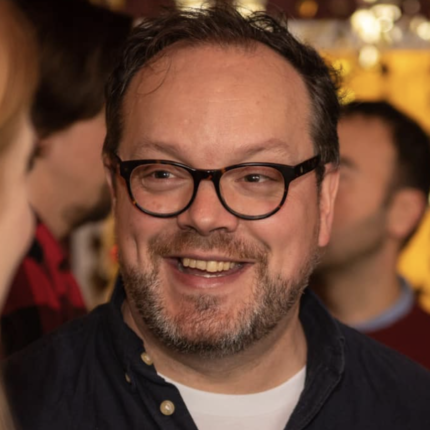This sounds strangely familiar, doesn’t it?
Sweden’s Tidö government is the right-wing coalition formed after its 2022 general election, bringing the Moderate Party, the Christian Democrats and Liberals together – with parliamentary support from the Sweden Democrats.
They inherited some pretty big problems in HE. Swedish universities are being forced to make cuts – there was a collective deficit of 1 billion kronor (€89 million) in 2023, partly because of skyrocketing rent – weirdly, universities don’t own their premises but lease them from the state-owned Akademiska Hus, which operates as a for-profit entity.
Rents now consume 12 per cent of university budgets – so with a 0.5 per cent spending cut imposed by the new government universities are cutting fixed-term contracts, reducing PhD places, shrinking course duration and consolidating office space.
The Association of Swedish Higher Education Institutions (SUHF) is pushing for universities to no longer be state administrative authorities, which could give them more financial freedom, including the ability to own property and enabling institutions to negotiate their own financial and operational frameworks more freely.
Finances haven’t been top of the political list, though – the Liberals took the education brief, and almost as soon as he was appointed, Education Minister Mats Persson was railing against “cancel culture” – picking up the case of Kajsa Ekis Ekman, who’d been due to give a breakfast talk on her gender-critical book Om Könets Existens (On the Existence of Sex) at Mid Sweden University in 2021.

It was to have been part of a series of conversations that addressed different perspectives on the construction of gender, but the Forum cancelled the seminar:
What happened is that before the seminar we realized that the format, a 45-minute digital seminar, was not a good form for such a discussion and that there was a risk that people would be offended, which is why we chose to cancel the seminar.
For critics – including Persson – this was the day that cancel culture arrived in Sweden. But rather than seeing the allegation as an import, his argument represented a neat twist – it was the phenomenon of an out of control identity politics movement that was polluting Swedish HE:
I realised that all these things I’d read about in the US and the UK, now it has come to Sweden… [We are] a small country, and we are wannabe Americans and wannabe British, so what happens in the UK and US usually comes to Sweden after a while.
Two solutions popped up – the first was to ask the country’s Higher Education Authority (responsible for quality, compliance, development, stats and degree-awarding powers) to initiate a review to map how widespread the phenomenon was.
Inconveniently, UKÄ’s report contained plenty of evidence that it is political interference that is Sweden’s biggest threat to academic freedom – researchers and teachers arguing that politics must “dare to let go and trust the universities’ own ability”.
But it also found cases where students exerted pressure on universities over controversial course content or teaching approaches, organised campaigns on social media, and instances where students submitted complaints against staff.

The good news is that it found that SUs’ employed ombudspeople often played a key role in mediating these conflicts rather than directly enforcing ideological positions – but it was a detail lost on Persson, whose second solution was to promptly reduce the national funding for SUs in the autumn budget 2023 by 30 per cent from 2026.
For SFS (Sweden’s NUS) that will, of course, weaken an important critical voice that fulfills an important scrutinising function regardless of the make up of the government.
Bed and study
It’s one of the things we’ve been talking about on Day 0 of our Wonkhe SUs mini-study tour to Stockholm. Today around 20 students’ union officers and staff from across the UK will make their way to the Swedish capital to begin a 2 day dash around the city aimed at building links with and learning from others representing and serving students – and while the trip doesn’t officially start until Monday morning, Jim has spent a long day popping in to campuses along the route from Copenhagen.
At Kristianstad University, “Bed and Study” is a concept that was developed by a group of nursing students at the small campus university a mile or so from the centre of Skåne’s fourth largest urban area.
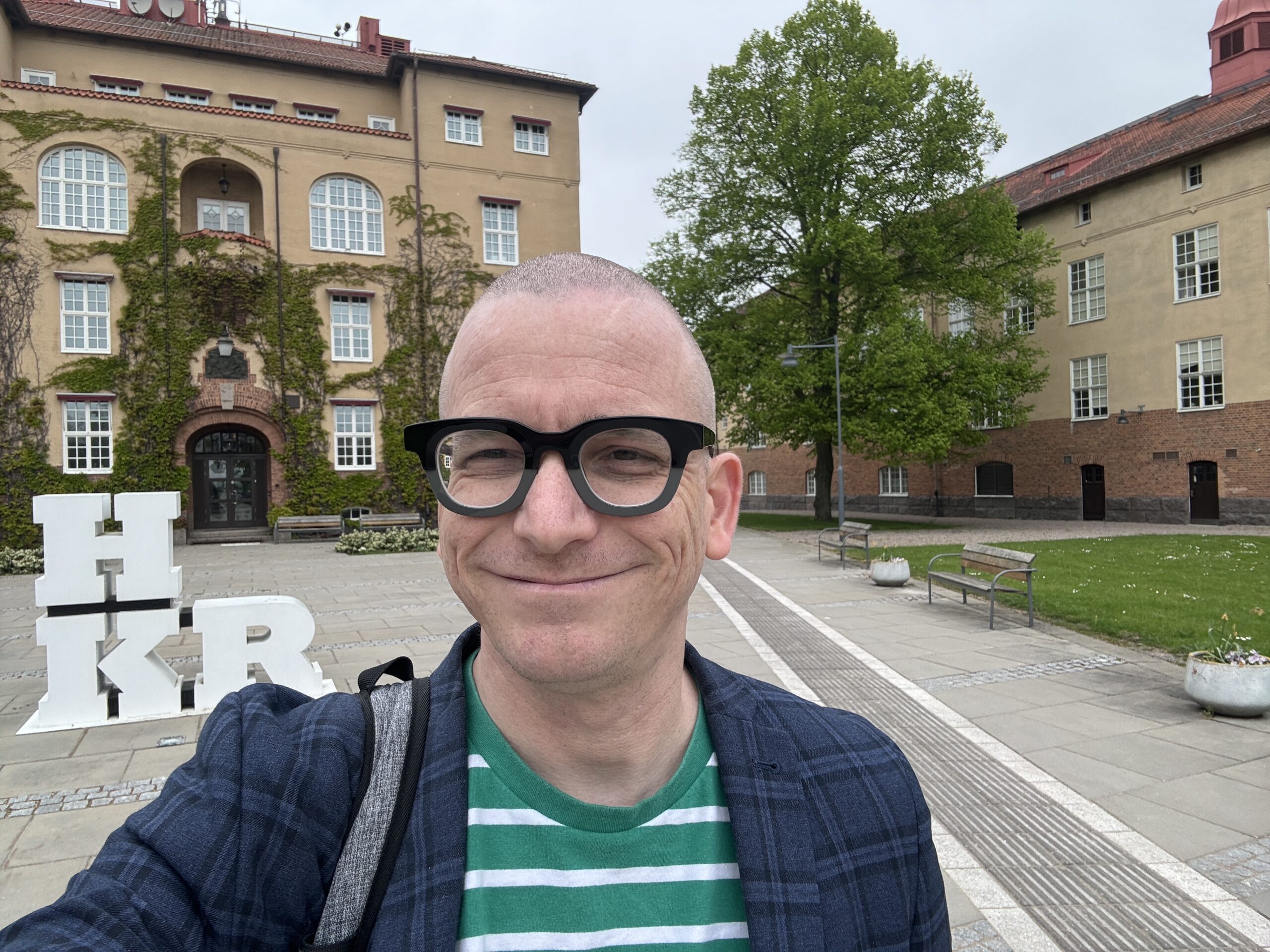
During the pandemic, most teaching and assessment was moved online – but for this group, who still needed to get to campus, the stress and cost of the commute, along with unsuitable space at home, were proving to be real barriers to successful completion.
So a plot was hatched between the municipality, the university and the SU. The Studio takes some barely used conference rooms in one of the city’s hotels and makes it, along with its WiFi and free tea and coffee, available to students.
The Hotel Night allows students to stay a couple of days in one of three for a vastly reduced price – so that students don’t have to commute back and forth during, for example, exams, group projects or block teaching.
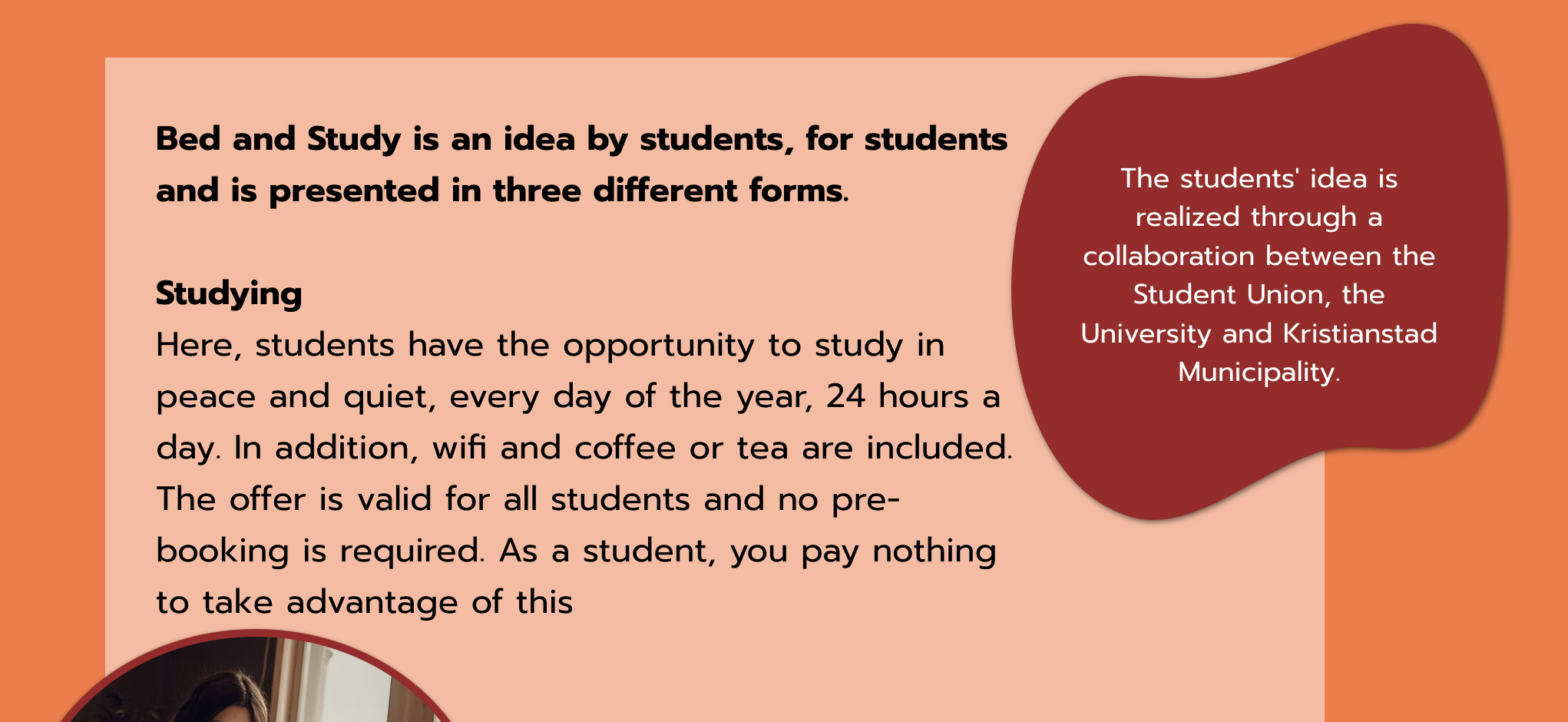
And for new students that have applied for student housing and are waiting to move in, there’s the opportunity to stay in one of five hotels at an even more discounted price at the beginning of a semester – with breakfast chucked in.
It all proved to be so popular – and so helpful – that long since what amounted to restrictions in Sweden being lifted that it’s still running now, and is one of the key reasons why Kristianstad was named SFS’ Student City of the Year in 2024:
In the justification from SFS, mention is made of good communications, a welcoming housing situation and a distinctive collaboration that prevails between the city’s students, university, public actors and business, and that student influence is expressed in several parts of the city’s and university’s development.
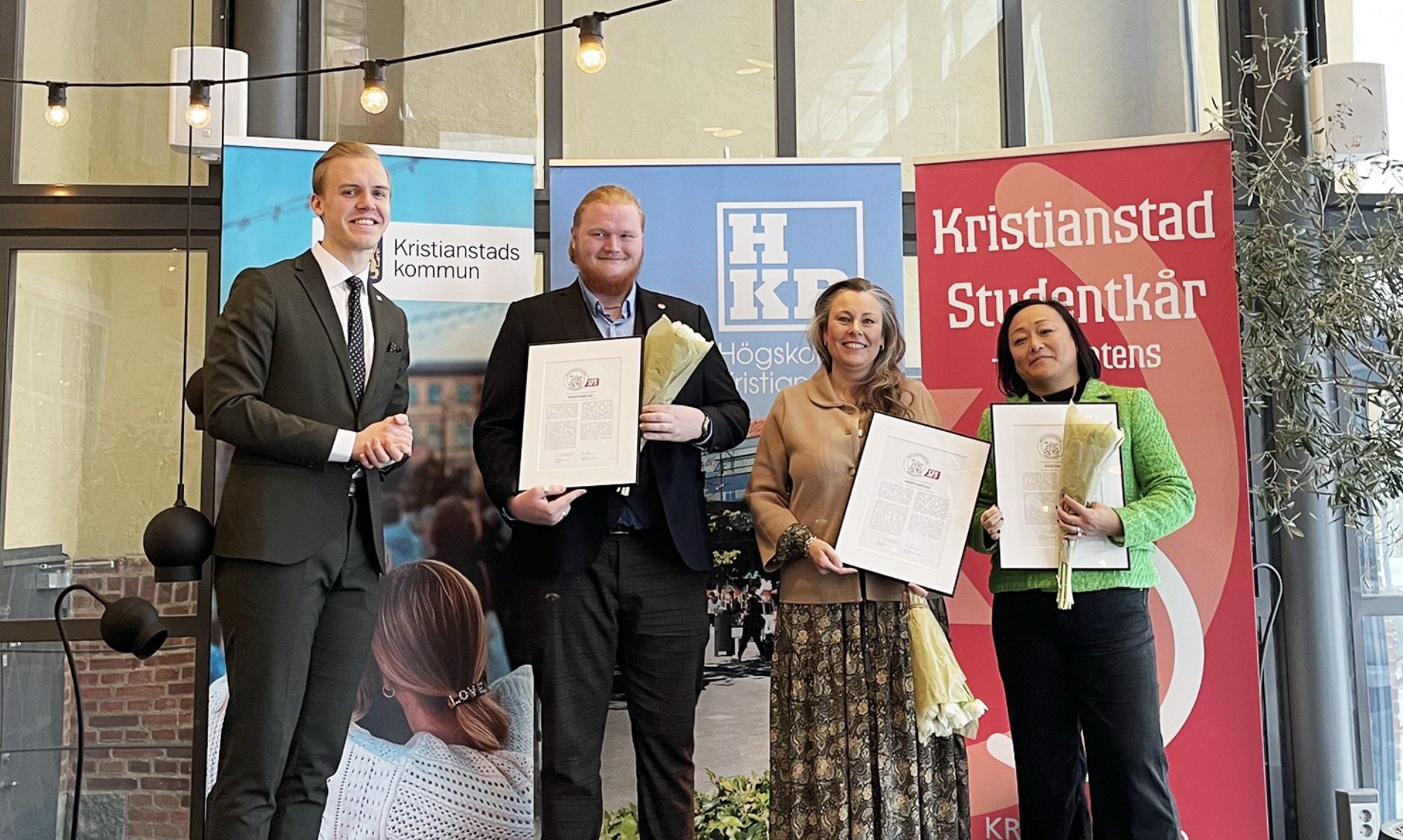
Managed mergers
A couple of hours north on the train is Vaxjo, home to one of the campuses of Linnaeus University, named after the famous Swedish botanist. It was formed in 2010 through the merger of Växjö University and Kalmar University, and was one of several mergers at the time that were seen as part of a national effort to strengthen higher education and research.
Unlike what we’re seeing in the UK right now, the Swedish government provided financial incentives and structural support for mergers – and as part of the plan, retaining geographical diversity was an important consideration to avoid centralising in major cities like Stockholm, Gothenburg, and Lund.
As a result the Linnaeus Union (“together with you we create possibilities and change”) maintains an operation in both cities, with its leadership board and small staff team operating in both locations – although opportunities for engagement are distinct to each city. Its student pubs (events, not buildings) run on a non-profit basis through a collaboration between various associations; educational associations are for everyone who studies a certain course and handle what we would know as course representation; interest groups are tied to a specific interest or area, and nations (more on them later in the week) are student social interest associations with a geographical theme.
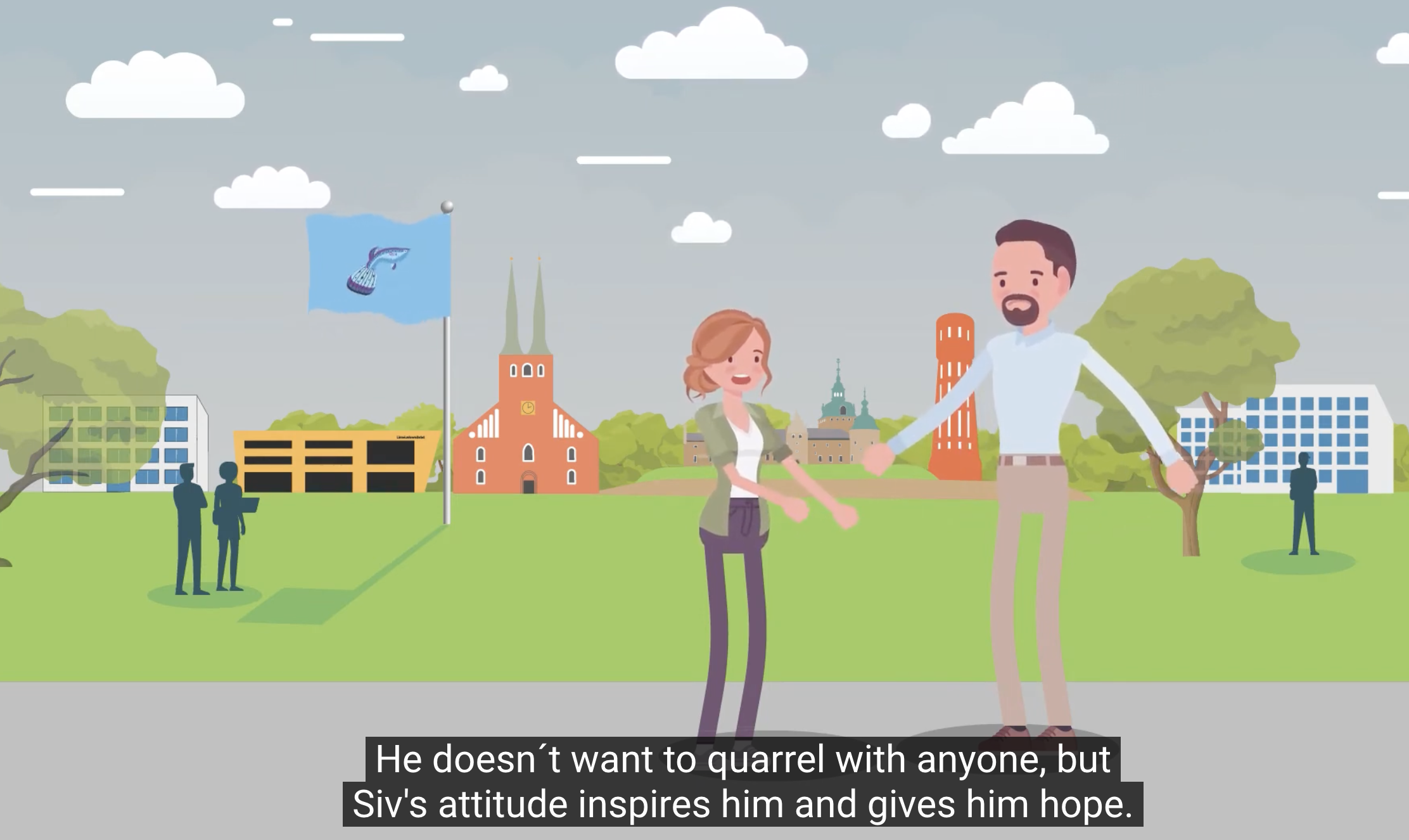
Its policy permeates all of its work and aims to ensure that students have the best possible time studying, both during and outside of their studies – ensuring that all students have the right to be treated on equal terms and receive the education they are entitled to. It’s something that comes across really clearly in its fab videos for new students on getting the most out of your education, getting involved, how other students help when something goes wrong and even belonging. There’s some very careful social norming messages here that SUs in the UK could take note from.
Another couple of hours north in Linköping, 2,000 students are trained by the SUs in how to be a peer student, whose job is to take care of new arrivals, and make sure they feel welcome. And Kalasmottagningen – new students’ day – includes teambuilding games, a fair and a concert featuring some of Sweden’s most popular musicians. The university is so proud of the programme that it credits it with generating the highest retention rate of students continuing to year two in the country.
There’s three SUs at LiU – Consensus, LinTek, and StuFF – which represent students across the faculties, and then each union has smaller branches called “sections” linked to specific subjects, which enhance student life by monitoring education quality and organising social activities – including welcome events, company fairs, parties, formal sit-down dinners (“sittningar”), and other year-round events.
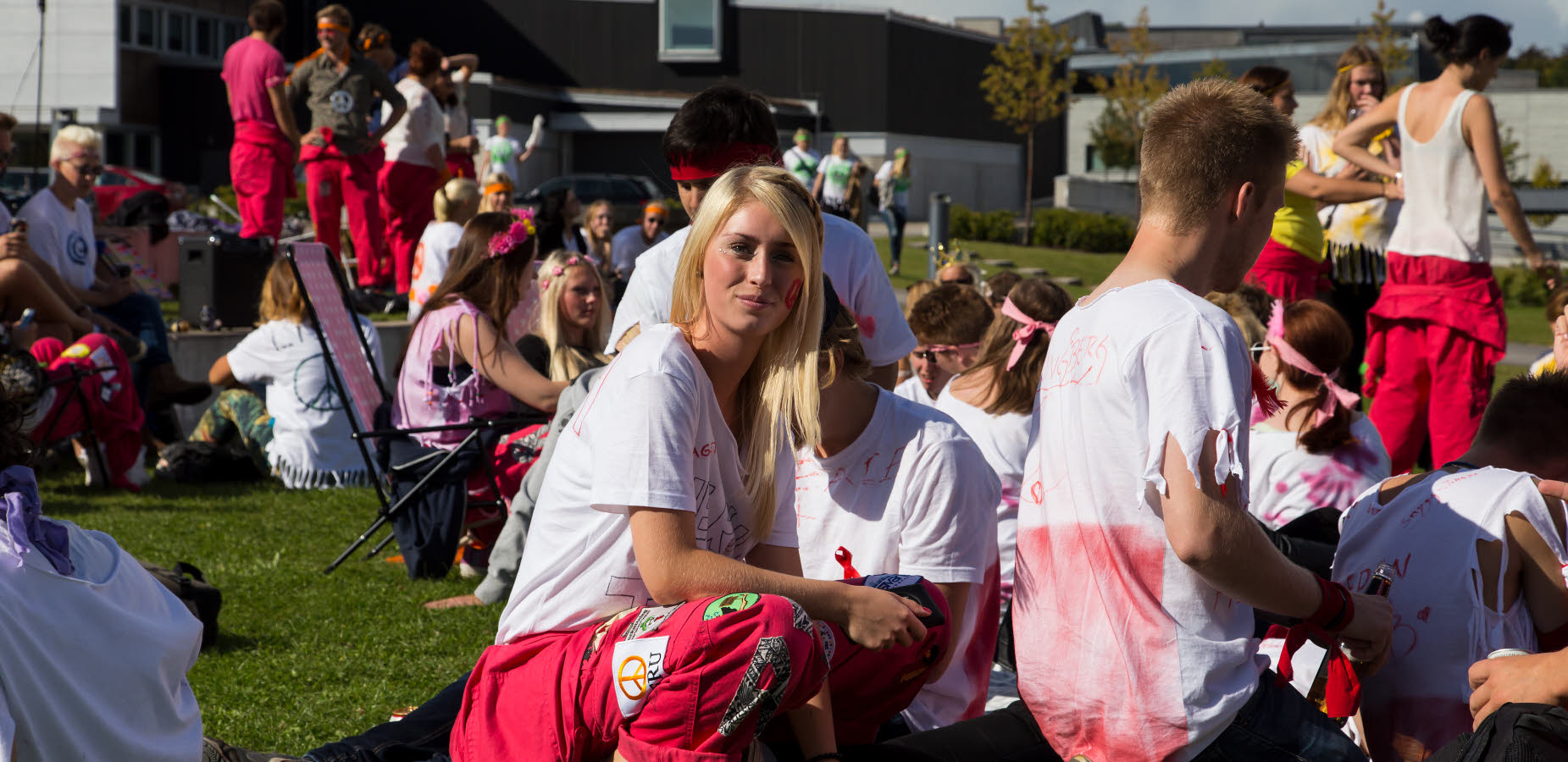
Like many SUs in Sweden, LinTek (Linköping Teknologers Studentkår) doersn’t talk about “representation” – it frames that sort of work as education monitoring, and you can see how that framing helps it have an impact:
“We ensure competent teaching staff, relevant courses, and training that adapts to a changing world, aiming for the best possible education. Our education managers and section study committee chairmen drive improvements through active participation in program committees and student representation. Programs at LiTH are managed by program boards, which include education managers and study board chairs who oversee student interests, course syllabi, and program changes.
Look mom! Actual planning
Another 90 minutes North West in Flemingsberg, Huddinge (just outside of the capital) is Södertörn University, on a campus deliberately designed to be shared with departments from the Karolinska Institutet and the Royal Institute of Technology (KTH) (see, more actual planning!).
There, involvement in the SU sees students earning merit points for their exchange study applications, while those engaged as a student representative receive a fee of 100 SEK/hour plus a 100 SEK preparation fee for their committee and meetings work.
Last month the SU met key figures in the Municipality to discuss proposed measures from its the Next Station: Student City Flemingsberg report, which highlights challenges like student housing shortages, financial struggles, and mental health concerns while proposing solutions for a vibrant, inclusive student city.
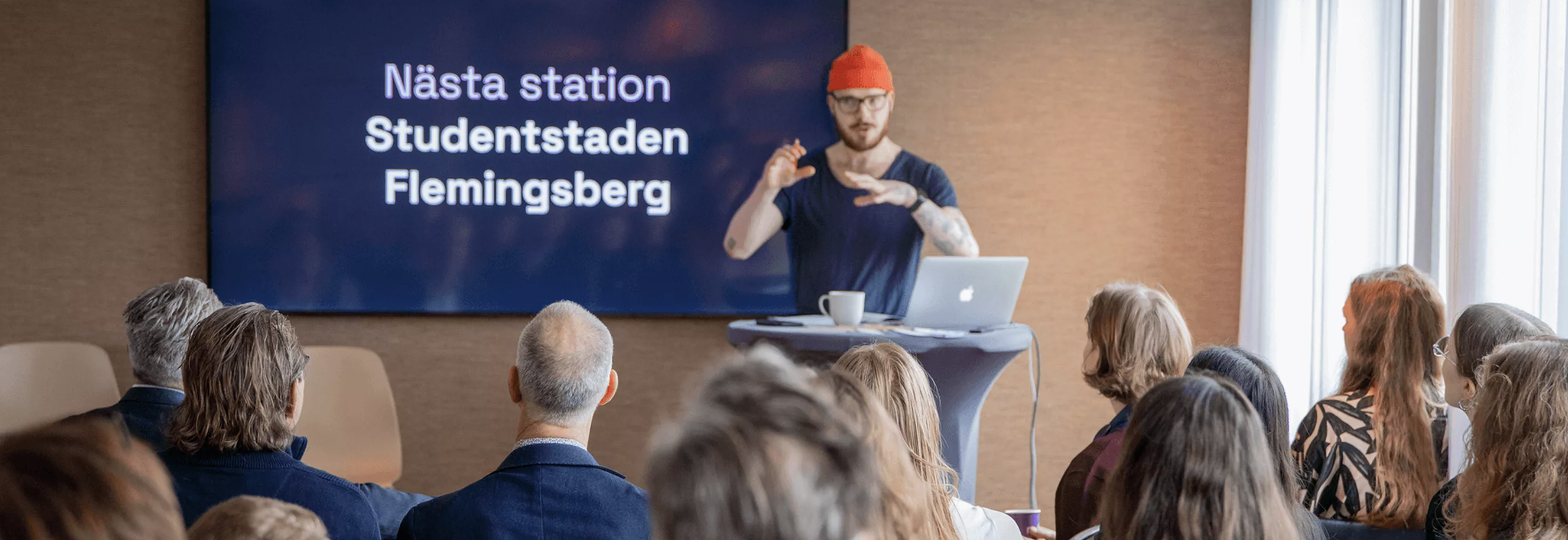
Key themes include better housing accessibility, stronger student influence in city planning, and building better connections between education, business, and culture to cement the city’s status as a leading student hub.
More on that sort of stuff tomorrow when we’ll be meeting with the Stockholm Federation of Student Unions – founded in 1896. This kind of urban advocacy work in the UK has some catching up to do!




